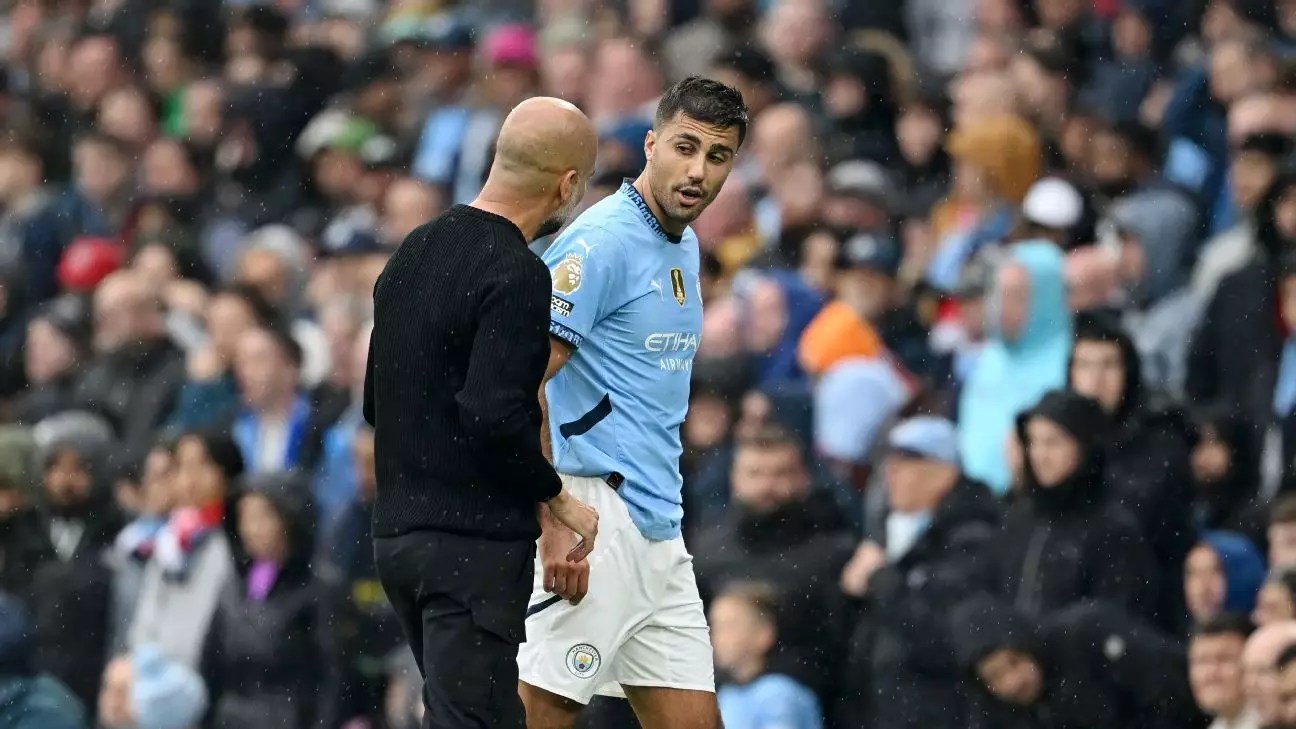The professional football landscape is currently experiencing an intense scrutiny that highlights alarming deficiencies in safety standards and labor practices. A comprehensive report by researchers at Katholieke Universiteit Leuven (KU Leuven) sheds light on these critical issues, raising questions about the global governing body of football, FIFA, and its policies. Commissioned by the global players’ union FIFPRO, the report serves as a pivotal piece of evidence in a joint complaint submitted to European antitrust regulators, detailing the detrimental impact of an expanding football calendar on player welfare.
At the core of the KU Leuven report is the assertion that professional football players should be recognized as workers, deserving of the same labor and employment protections available to other professions. Frank Hendrickx, director of the Institute for Labour Law at KU Leuven, articulates a fundamental issue: “In the realm of sports, employment standards often seem to be cast aside.” This perspective underpins the argument that the standards set forth in labor laws at both national and international levels need to be applied to the realm of football.
FIFPRO explicitly emphasizes that the intense demands placed on players—spanning from the frequency of matches to grueling travel schedules—are not adequately considered when crafting competition formats. This disregard manifests itself in adverse effects on both physical and mental health, raising critical ethical questions about the responsibility of governing bodies like FIFA toward its athletes.
The growing concern around player wellbeing has reached a fever pitch, particularly with the looming expansion of the FIFA Club World Cup. This alteration has shifted the tournament from seven to an astonishing 32 participating clubs, essentially squeezing players’ respite between seasons. The implications are severe: as noted by health and safety expert Lode Godderis, the frequency and variation of training sessions combined with match loads result in notably higher injury rates within professional football than in various other industries.
Fatigue—both physical and mental—has been flagged by players and experts alike as a growing concern. More players are voicing their frustrations over a punishing schedule that emphasizes competitive play while neglecting their holistic health. Alexander Bielefeld, FIFPRO’s director of policy and strategic relations for men’s football, reinforced that the players now feel a pressing need to advocate for change as schedules become increasingly congested.
The issue escalates further with the joint antitrust complaint filed against FIFA, which alleges that the governing body abuses its dominant position by imposing unfounded demands concerning the international football calendar. Legal expert Alfonso Lamadrid highlights a critical dimension of this complaint: “FIFA not only fails to safeguard players’ health but actively obstructs adherence to health principles.” This presents a unique scenario where not only are current standards failing, but the structural changes made by FIFA complicate compliance even further.
The report’s findings are likely to bolster the legal actions taken against FIFA by various players’ associations across Europe. England’s Professional Footballers’ Association, France’s Union Nationale des Footballeurs Professionnels, and Italy’s Associazione Italiana Calciatori are among the organizations rallying for justice on behalf of players.
As the world observes these unfolding events in professional football, there is a clear and pressing need for a paradigm shift in how players’ health and safety are prioritized. The findings presented by KU Leuven are not mere critiques; they are a clarion call for reform within an industry that often values competition and commercial gain over the wellbeing of its athletes.
These challenges echo a broader theme within professional sports, where the pressures of performance overshadow essential labor protections. The conversation must evolve to ensure that the rigorous demands of the sport do not come at the expense of the players themselves.
Addressing the dissonance between competition intensification and player safety is imperative for the future of professional football. Stakeholders must engage collaboratively to redefine what it means to protect and prioritize the health of athletes. The way forward should encompass a commitment not only to the excitement of the game but also to the rights and welfare of those who play it, paving the way for a healthier, more sustainable future in professional football.


Leave a Reply